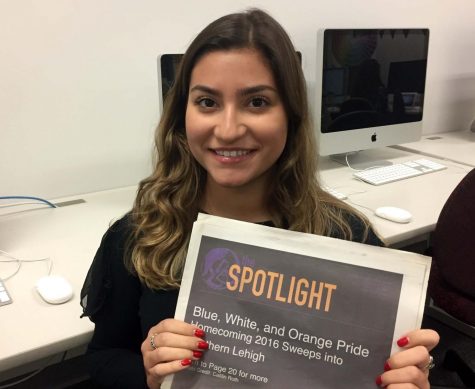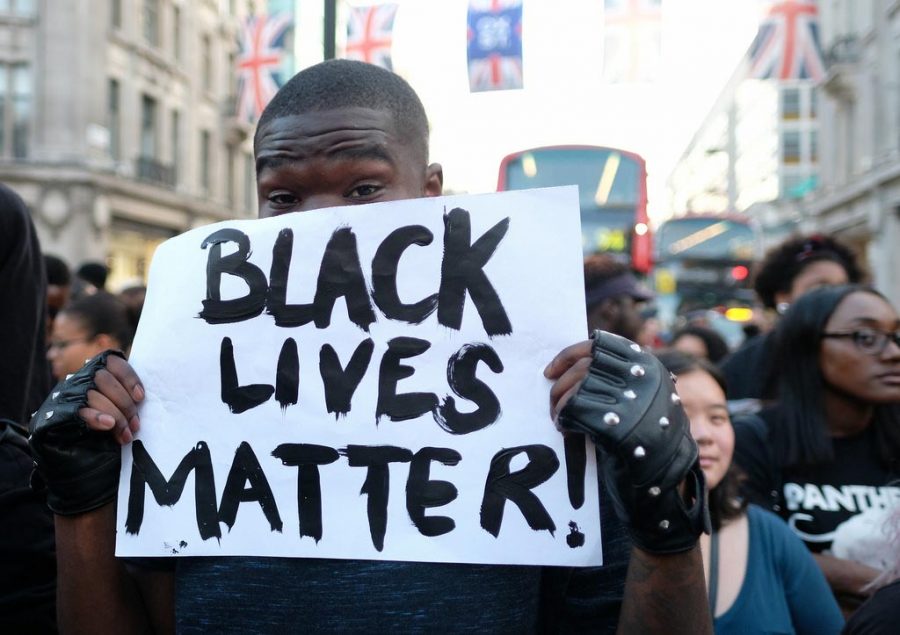Quarterback’s Protest Draws Attention to Police Brutality
https://www.flickr.com/photos/alisdare/28156903756
In support of the controversial #BlackLivesMatter (BLM) movement, San Francisco 49ers quarterback Colin Kaepernick remained seated for the singing of “The Star Spangled Banner” during almost their entire preseason; he resorted to kneeling after being told his failure to stand was disrespectful to U.S. veterans.
Kaepernick’s protest, which he justifies by claiming that he will not show pride in a country that turns a blind eye toward racial injustices, came shortly after the consecutive killings of black Americans Alton Sterling, 37, and Philando Castile, 32, by police sparked outrage amongst civil rights activists.
Without providing specifics, the biracial quarterback has promised to donate one million dollars to organizations in “communities of need.”
“To me, movements are fantastic, but movement without action is nothing. Communication is first and foremost in anything,” school resource officer Brian McLaughlin said. “It’s okay to disagree and have different views, but so far, I think on both sides people are quick to identify the ‘what,’ but fail to address ‘why?’ Let’s figure out not just the symptoms of the problem, but the cause, and move forward to do something about it.”
According to a statement published by the New York Times, the 49ers remained neutral about Kaepernick’s actions.
“In respecting such American principles as freedom of religion and freedom of expression, we recognize the right of an individual to choose to participate, or not, in our celebration of the national anthem,” they said.
Much like any form of public political expression, Kaepernick’s taking a stand by not taking a stand has attracted both unfiltered condemnation and praise, including Republican presidential nominee Donald J. Trump’s statement inviting Kaepernick to “find a country that works better for him.”
“I think Kaepernick, like others, has the right to express discontent with society, and I think it was brave of him to use his celebrity platform to raise concerns about an issue that is so charged,” social studies teacher Mrs. Katie Quartuch said. “I’ve read arguments from veterans who are offended and others who are not. I think veterans sacrifice in a way that most of us can never imagine, and so I can understand why some might be hurt by his actions. I also think that his ability to express his political opinions are part of what makes us lucky to live in the United States.”
“I firmly believe in this country that gives us the right to protest and state our views. I’ve had to protect those rights even when they contradicted with my personal feelings because that’s what America is all about. However, that doesn’t take away my right, or other people’s rights, to disagree,” Officer McLaughlin said. “I think the method Colin used could’ve been done better, and I think that he’s tried to do better because he went from sitting to kneeling. But the controversy here is that he’s disrespecting the military that, frankly, has given him the right to do exactly what he’s doing. It’s not just what you say, it’s how you say it.”
As a nod to Kaepernick, gay soccer player Megan Rapinoe, who has openly expressed her belief that Americans should start a “more substantive conversation” regarding the oppression of people of color, took a knee when the national anthem played before her team competed against the Chicago Red Stars.
Ever since the murder of unarmed 17-year-old black American Trayvon Martin in 2012, more and more people have been joining the BLM movement in order to express outrage toward police brutality, particularly against people of color.
“I am glad that passionate people have come together to express their beliefs about our society and government. I think [BLM] has spurred a lot of important conversations about how people feel that they are treated and how they should be treated,” Mrs. Quartuch said. “I also think that the Blue Lives Matter movement allows us to have conversations about the nearly impossible job that police are asked to do everyday. Both movements force us to consider things that may be hard to face.”
As proof of racial prejudice in the American justice system, activists cite the fact that black people are approximately 2.5 times more likely to be shot and killed by police than white people. Furthermore, 13 percent of all black people who were fatally shot by police since January 2015 were unarmed, compared with 7 percent of white people, according to the Chicago Tribune.
“When we say ‘Black Lives Matter,’ we are broadening the conversation around state violence to include all of the ways in which black people are intentionally left powerless at the hands of the state,” the BLM website said. “#BlackLivesMatter is working for a world where black lives are no longer systematically and intentionally targeted for demise.”
In contrast, many people who proclaim #AllLivesMatter in response find the BLM movement to be exclusive, alleging that they fail to acknowledge police brutality against other people of color, as well as white people. Others shout #BlueLivesMatter, claiming that police officers do not deserve such harsh criticism for simply doing their jobs, and that BLM has instigated police killings. A petition even surfaced on the White House’s “We the People” platform, aiming to “formally recognize Black Lives Matter as a terrorist organization” and receiving over 141,000 signatures.
“You can’t label one person the same as another person just because they’re affiliated with the same group. There are so many organizations in the world you can categorize negatively or positively depending on where you stand,” Officer McLaughlin said. “It’s hard because there’s so much good that comes from these conversations, but also the potential for violence on both sides. I also think the media in some respect has sensationalized and gives slanted views and opinions, and then people rely on what’s out there and create more adversity.”
“I think that a lot of people aren’t fully grasping what the Black Lives Matter movement is all about. It isn’t saying that only black lives matter or that black people are above all other races, it’s saying that, for whatever reason, people of color in general are seen as inferior,” junior Jill Werbisky said. “Racial inequality has been a part of our country’s history since its founding. I think it’s hard for people to understand that if they haven’t experienced racism firsthand.”
As long as unarmed black Americans continue to be disproportionately killed by police, it is unlikely that protests such as Kaepernick’s refusal to stand for the anthem will falter.
“We get distracted very quickly by the protests and riots because of emotion, personal views, and stereotypes that the media generates, when we don’t have solid communication,” Officer McLaughlin said. “I’ve met many people who have said that they can’t stand cops. My response to that is, ‘how many do you actually know?’ It’s not about me in the uniform, it’s about the uniform. It’s an exterior. They haven’t challenged themselves to go deeper. That’s what we have to do as human beings: challenge ourselves to go deeper.”

Senior Sarah Trebicka is a four-year staff reporter and former two-year Our World editor, now serving as editor-in-chief for the Spotlight. In addition...


